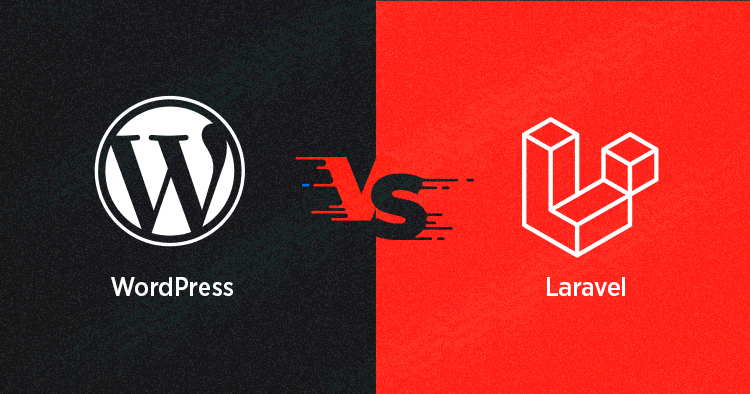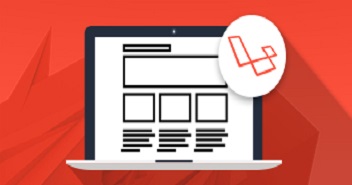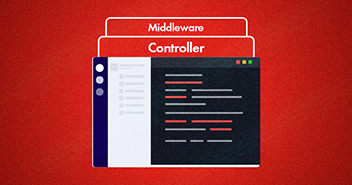
Navigating the ever-evolving landscape world of web development in 2024, Laravel and WordPress emerge as standout choices.
But which platform suits you best? Are you a developer looking for a versatile framework or a business owner aiming to boost your digital visibility? Your choice hinges on understanding both options’ unique strengths and possible drawbacks.
In this blog post, we’ll take on the Laravel vs. WordPress debate, offering clear, comparative insights. We’ll touch on critical aspects like flexibility, scalability, security, user-friendliness, and extensibility to help you make an informed decision.
So, whether you’re a developer or a business owner, join us as we delve into the world of Laravel and WordPress. Let’s discover the perfect platform for your 2024 web project.
Laravel vs WordPress: An Overview
Before we jump into the comparison, let’s go through a quick overview of Laravel and WordPress.
Laravel Overview
Gaining a remarkable foothold amongst developers, Laravel, a PHP framework, is much appreciated for its refined syntax, comprehensive documentation, and active community. Laravel’s forte lies in sculpting tailor-made, scalable web applications.
Packed with an impressive suite of features, Laravel boasts a potent ORM (Object-Relational Mapping) layer, a sturdy routing system, and expressive syntax. These features make Laravel a top-tier choice for developers who value customization and adaptability.
WordPress Overview
Stepping beyond its origins as a blogging platform, WordPress has blossomed into a multifaceted CMS (Content Management System) that’s behind over 40% of websites worldwide. Its reputation as a go-to web creation and content management platform remains undisputed.
WordPress’s allure is its intuitive interface, enormous theme and plugin collection, and easy operations. It’s an ideal fit for individuals and small businesses aiming to establish a website presence, all while minimizing the need for extensive technical prowess.
Laravel vs WordPress: At a Glance
Here’s a table presenting a quick comparison of Laravel and WordPress:
| Feature | Laravel | WordPress |
| Framework Type | PHP MVC framework | Content Management System (CMS) |
| Development Paradigm | Object-Oriented Programming (OOP) | Mostly procedural, some OOP |
| Code Organization | Organized, follows MVC pattern | Relatively flexible, follows plugin/theme structure |
| Customization | Highly customizable | Customization limited to plugins and themes |
| Learning Curve | Steeper learning curve | Easier to learn, especially for beginners |
| Performance | Highly optimized and fast | Performance can be impacted by plugins |
| Database Support | Supports various databases through ORMs like Eloquent | Built-in support for MySQL, also supports others |
| Security | Strong security measures | Vulnerable to attacks if not properly maintained |
| Scalability | Suitable for building scalable applications | Scalability depends on server and plugins |
| Community Support | Active and growing community | Large and supportive community |
| Use Cases | Complex web applications, APIs, enterprise-level projects | Blogs, small to medium-sized websites |
| Development Speed | Requires more initial setup time and configuration | Quick setup, ready-to-use features and themes |
| Maintenance | Requires regular updates and maintenance | Frequent updates and maintenance required |
| Cost | Free and open-source | Free and open-source |
Laravel vs WordPress: Head to Head Comparison
Now that we have learnt about Laravel and WordPress, let’s compare them against most important features.
Performance and Scalability
Performance and scalability have never been as critical as they are today, significantly influencing user experiences, page load times, and overall responsiveness. Here’s how Laravel and WordPress address these crucial elements:
Laravel

Source: Laravel
Laravel, being a PHP framework, utilizes several performance-enhancing techniques for seamless execution. Its modular structure and extensive ecosystem enable developers to build highly-scalable applications.
Through Laravel’s support for horizontal scaling, it orchestrates application distribution across multiple servers while using tools like load balancers. Also, Laravel’s support for queueing systems, such as Redis and RabbitMQ, facilitates handling tasks asynchronously.
Additionally, Laravel benefits from the powerful underlying PHP engine, which has been continuously optimized over the years.
WordPress

Source: developer wordpress
WordPress, a platform primarily built using PHP, has undergone significant upgrades in recent years to maximize performance. It offers a vast library of plugins and themes, allowing users to turbocharge their websites’ speed.
While WordPress was primarily designed for smaller-scale websites, it can be scaled up effectively using caching plugins, content delivery networks (CDNs), and optimized hosting environments for high-traffic management. Advanced caching mechanisms and CDN availability further propel WordPress site performance.
Development Ease
Developers often prioritize ease of development when choosing a platform. This section examines how Laravel and WordPress address learning curves, resources, documentation, and community support.
Laravel

Source: Laravel Development
Laravel, known for its elegant syntax and developer-friendly features, prioritizes ease of development. It offers a well-structured, intuitive codebase for clean, maintainable code.
Laravel’s “ecosystem” of pre-built packages simplifies common development tasks such as routing, authentication, database interactions, and caching.
Laravel’s core philosophy centers on developer productivity and ease of use, fostering code reusability for streamlined maintenance and updates.
WordPress

Source: Developer WordPress
WordPress’s development process revolves around simplicity and accessibility, providing an easy-to-use admin panel for swift content management and customization. WordPress themes and plugins serve as building blocks, letting developers extend functionality and design without starting from scratch.
WordPress’s hooks, filters, template hierarchy, and automatic updates allow developers to create unique website sections, modify core functionalities, and keep their websites up to date with minimal effort.
User Friendliness
A platform’s user-friendly nature impacts user experiences and satisfaction. Let’s see how Laravel and WordPress address this.
Laravel

Source: Laravel
Laravel focuses primarily on developer user-friendliness than end-user experience, providing developers with a clean and readable codebase. Its comprehensive documentation and well-structured API simplifies the development process.
The framework’s powerful features, like routing, database management, and authentication, are designed to be developer-friendly, enabling efficient development without sacrificing flexibility.
WordPress

Source: WordPress User Tags
WordPress strongly emphasizes user-friendliness, catering to developers and non-technical users alike. Its intuitive user interface, user-friendly admin panel, extensive library of themes and plugins, and availability of drag-and-drop page builders allow for website customization without the need for coding skills.
Security and Maintenance
Security and maintenance are paramount for any web platform. Let’s examine how Laravel and WordPress address these crucial aspects.
Laravel

Source: Laravel Security
Laravel comes with built-in protection against common web vulnerabilities like cross-site scripting, request forgery, and SQL injection attacks.
Its query builder and ORM automatically escape user input for SQL injection protection. Laravel also supports encrypted passwords, including features like CSRF token verification and secure session handling.
WordPress

Source: WordPress Security
WordPress is committed to maintaining a secure platform, implementing various security measures. Its regular updates address vulnerabilities and a dedicated security team actively monitors and responds to security issues.
Additionally, it enhances its security via plugins providing features like malware scanning, firewall protection, and login security.
Popularity
Popularity is an important factor to consider when choosing a web platform as it reflects the platform’s adoption rate, community support, and ecosystem.
Laravel

Source: trends.builtwith
The surge in Laravel’s popularity has contributed to its strong community support and extensive ecosystem.
The active development and frequent updates offer developers an access to the latest features, improvements, and security patches. Laravel’s growing popularity also indicates high demand in the job market, creating opportunities for skilled developers.
WordPress

Source: trends.builtwith
WordPress’s immense popularity translates to an extensive knowledge base and ample community support.
The wide range of themes and plugins available caters to diverse design and functionality requirements, and the constant innovation from the community further enriches the WordPress ecosystem.
Hosting
Choosing the right hosting solution is crucial for websites and applications’ performance, security, and availability. Let’s see how hosting is approached in the context of Laravel and WordPress.
Laravel

Laravel is flexible, with no specific hosting requirements or restrictions since it is a PHP framework. Developers can benefit from hosting providers offering Laravel-specific hosting plans or optimized environments.
Among these, Cloudways stands out with its robust infrastructure, dedicated support, and seamless hosting experience for Laravel-based applications.
With Cloudways, developers can focus solely on developing their Laravel applications without worrying about the complexities of server management, ensuring a seamless overall experience.
Nothing as Easy as Deploying Laravel Apps on Cloud
With Cloudways, you can have your PHP apps up and running on managed cloud servers in just a few minutes.
WordPress

WordPress is designed to be highly compatible with a wide range of hosting environments. However, you must consider factors like server performance, storage capacity, bandwidth, and customer support while selecting a WordPress hosting provider.
Managed WordPress hosting providers specialize in WordPress websites, offering optimized server configurations, automatic updates, and additional security features.
Among managed hosts, Cloudways stands out as the best choice for WordPress hosting due to its managed approach, high performance, robust security measures, user-friendly interface, scalability, and expert support. Also, Cloudways Autonomous is specially designed for high traffic WordPress hosting. It has highly-available WordPress hosting servers, which prevents your site from crashing when it experiences high traffic.
By hosting your WordPress site on Cloudways, you can focus on creating exceptional content and growing your online presence, while Cloudways takes care of the technical aspects, ensuring a smooth and reliable hosting experience.
Ready to take your WordPress customization to the next level?
Check out Cloudways Managed WordPress Hosting for lightning-fast speed, effortless scalability, and easy customization.
Click here to learn more and get started today!
Laravel vs WordPress: Pricing Comparison
When comparing Laravel and WordPress, pricing is a crucial factor. Understanding their pricing structures, including hosting options like Cloudways, can help you find the most cost-effective solution.
Cloudways is a flexible cloud hosting platform that offers pricing plans based on the supported cloud infrastructure providers. Their Pay-As-You-Go model considers factors like cloud provider choice, server size, storage, bandwidth, and additional features. This ensures you only pay for the resources you use.
With Cloudways, hosting both Laravel and WordPress is easy. They offer various server sizes to accommodate different project needs, from small personal blogs to high-traffic enterprise websites.

Laravel Pricing
The Laravel framework itself is free of charge. However, the development and mentainence help that you’ll likely require for software implementation won’t come cheap.
The typical range for such assistance can vary from $20 and $100 per hour, placing the cost of a custom Laravel website between $3,000 and $250,000, depending on the complexity and requirements of the project.
Other than this, the hosting costs vary on the provider you choose. Managed cloud hosting providers like Cloudways offer Laravel hosting for as low as $11/month with a set of extensive features.
WordPress Pricing
The cost of a WordPress website varies significantly, depending on whether you’re managing the design in-house or outsourcing it to a consultant or web development agency.
For in-house WordPress development, costs range from $20 to $300, while hiring freelancers costs between $500 to $5000. Engaging with agencies could entail expenses from $3000 to $100,000.
Regarding maintenance, in-house services could cost up to $25 per month, whereas freelancers might charge between $50 to $100 per hour. Opting for agency-based maintenance services could cost you around $119 to $449 per month.
Additionally, regarding WordPress hosting, the costs can vary depending on your chosen provider. Managed cloud hosting providers, such as Cloudways, offer WordPress hosting starting as low as $11 per month, providing a range of comprehensive features.
As you evaluate your hosting costs, our Web Hosting Pricing Calculator proves invaluable. Tailoring recommendations for the optimal server size based on your traffic, and also includes a detailed comparison between the top hosting providers.
Final Verdict: Laravel vs. WordPress – The Better Option in 2024
The ultimate choice between Laravel and WordPress depends on your unique needs and objectives.
Laravel shines in creating custom web applications, offering flexibility, scalability, and a robust ecosystem tailored for developers. On the other hand, WordPress is renowned for its ease of use, effective content management, and vast catalog of themes and plugins, making it the ideal choice for individuals and small businesses aspiring to establish a robust online presence quickly.
It’s crucial to consider your project requirements, development expertise, and long-term vision before deciding. With their proven track record in the web development realm, both Laravel and WordPress provide powerful tools to craft impactful and successful online experiences.
Q) Is Laravel better than WordPress?
A) Laravel and WordPress serve different purposes; Laravel is a powerful PHP framework for web application development, while WordPress is a popular content management system (CMS) primarily used for building websites and blogs, so it’s not accurate to compare them in terms of being better or worse.
Q) Laravel or WordPress: Which is better?
A) Laravel and WordPress cater to different needs. Laravel, a robust PHP framework, excels at developing web applications, whereas WordPress, a renowned CMS, shines in creating websites and blogs. Hence, their comparison is context-dependent rather than a question of superiority.
Q) Is WordPress more user-friendly than Laravel?
A) Typically, WordPress is seen as more user-friendly and simpler to learn than Laravel. Its intuitive interface makes website creation and management accessible for beginners and non-technical users. Laravel, conversely, necessitates advanced technical proficiency for effective web application development.
Q) When should I choose Laravel over WordPress?
A) Laravel is the go-to solution for building complex web applications with custom functionality, scalability, and extensive customization. Conversely, WordPress is the perfect choice for content-focused websites and blogs, offering quick setup and user-friendly operation.
Q) Is Laravel used in WordPress?
A) No, Laravel is not used directly within the WordPress core. While Laravel doesn’t feature in WordPress’s core, you can integrate it by devising a custom theme or plugin. This melds the strengths of both platforms, allowing developers to use Laravel for customizations and intricate features while leveraging WordPress’s content management prowess.


